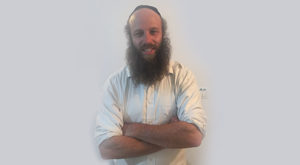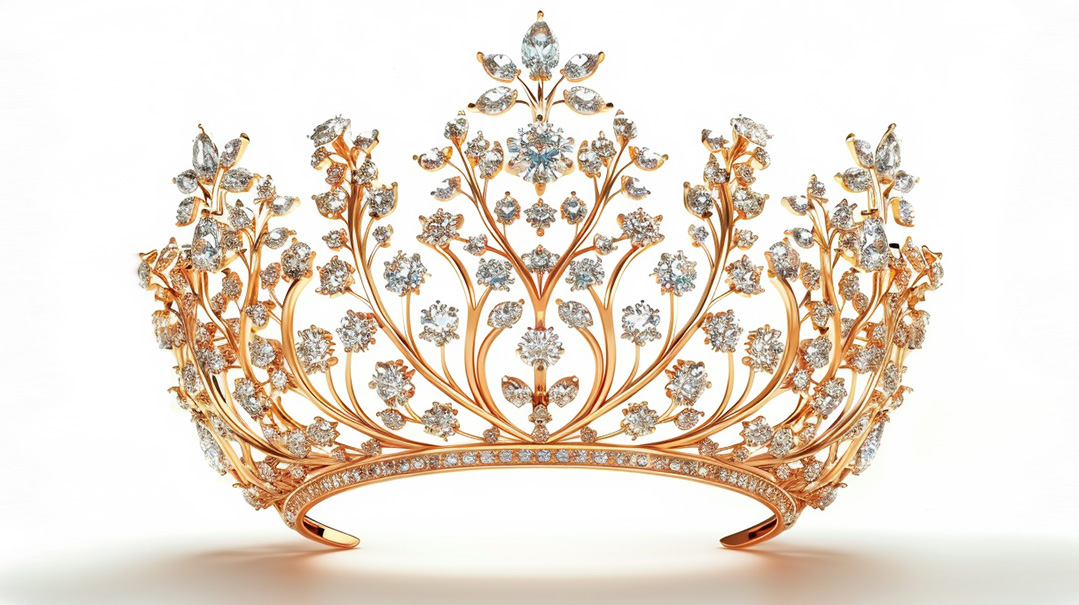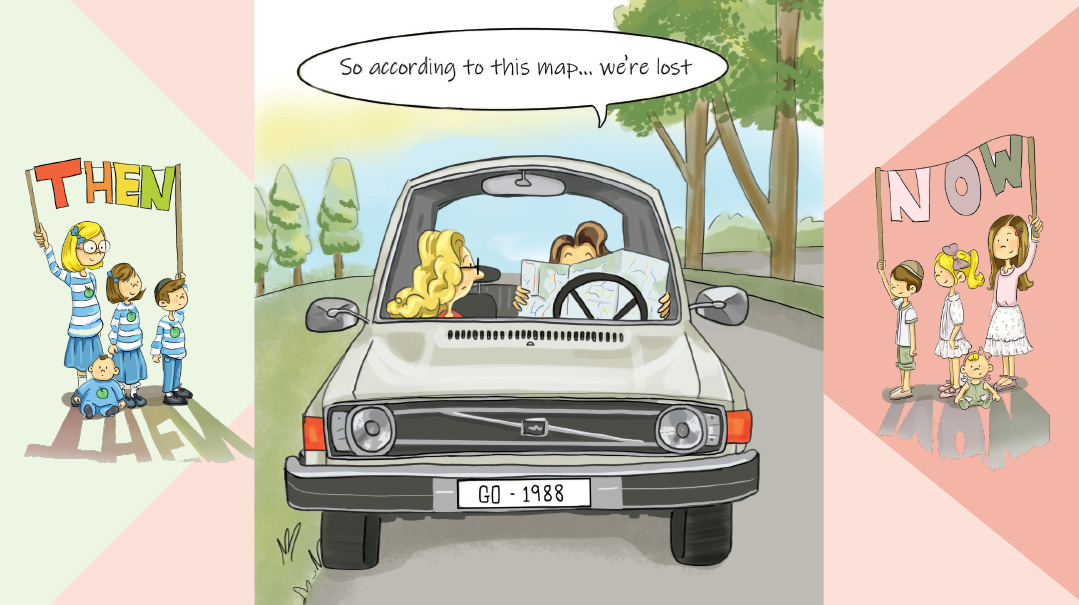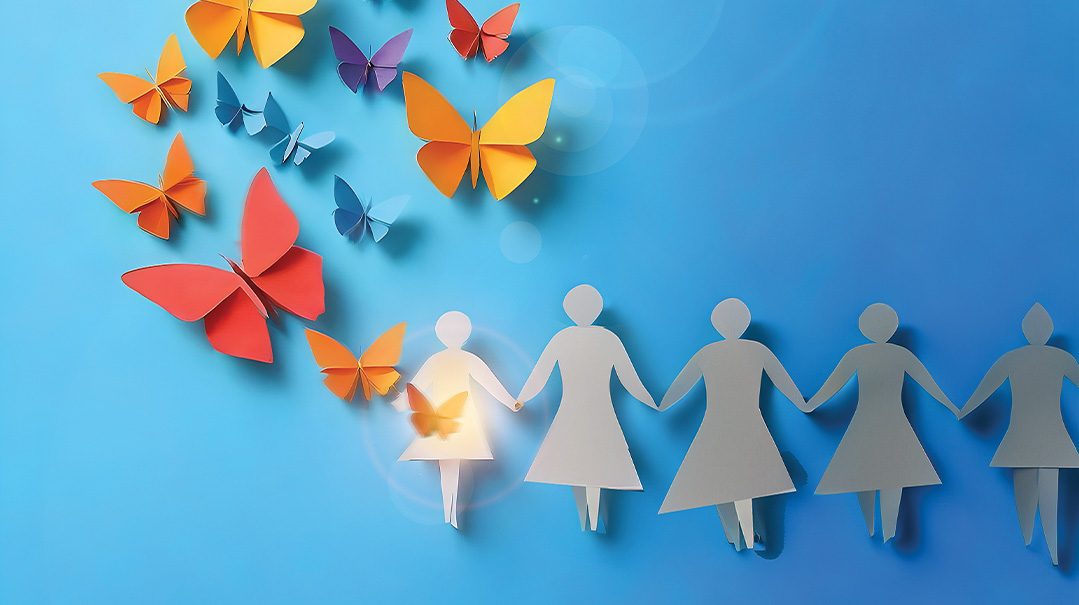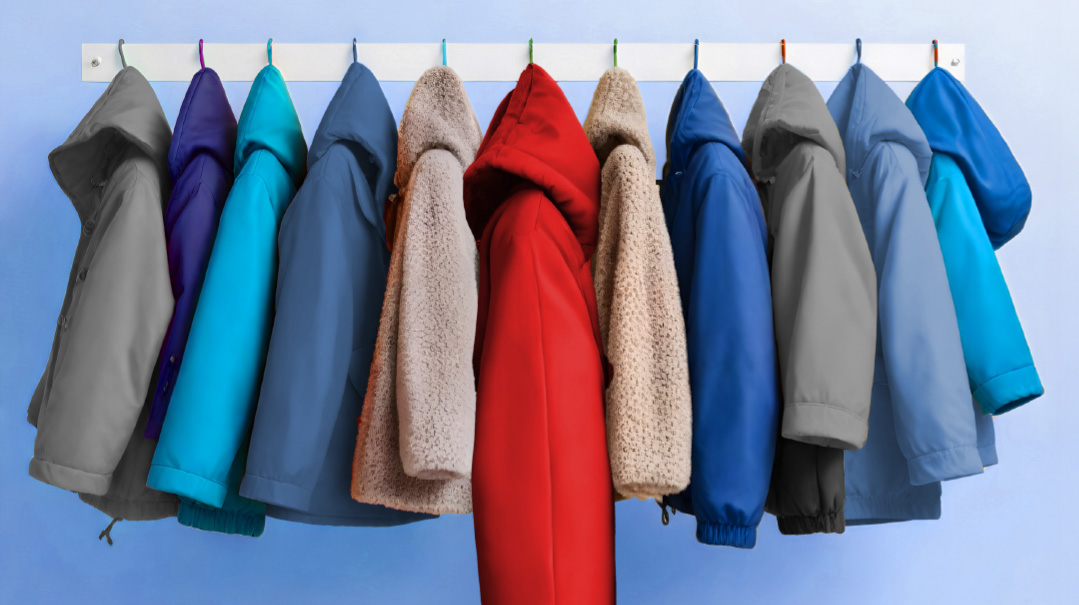Smoke and Mirrors: The conversation continues
| December 23, 2020Our initial article garnered a deluge of thoughtful responses, as women shared their feelings and journeys. Here are some of their voices

The Pink Dress
Eliana Cline
I never, ever buy myself clothes. It’s a combination of no-time-no-money-maybe-I’ll-magically-be-thinner-and-fit-into-everything feelings.
But I was desperate.
So, when I had an hour to spare in Rosebank the other day, I sauntered into The Space, an artsy-trendy-incense-burning clothes shop I adore. After drooling over the racks of glorious clothing, I took two of the same style dresses to try on. One was black, and one was a light pink, floral, whimsical material. I tried on the black one first and came out to the central mirror to have a proper look. It was pretty and comfortable.
Another lady was there, also trying on dresses, and examining herself in front of the mirror.
I went back and tried on the pink dress. The woman was still there. We smiled awkwardly at each other, then she told me, “The black dress was more flattering.”
She said this from a place of kindness. And if this had happened two years ago, I would have grabbed the black dress and paid for it.
But not now.
For the very first time in my life, being thin is no longer my ultimate goal. Looking skinny is not the ideal compliment I can receive. The need to look thin, and be thin, no longer drives my choices. I’ve learned to aim for something higher than the lowest number on the scale.
I bought the pink dress.
Modest Assumption
A.T.
“Smoke and Mirrors” gave us pause to reflect and generated much discussion. The subject pained me especially, as I recalled a conversation I’d had some time ago.
I’m grateful to be involved in kiruv, and “Sarah,” the young, very bright professional I was learning with, was eagerly absorbing Torah. We discussed the concepts of tzniyus, how downplaying our externals helps us become aware of our internal essence, how external beauty may enhance but doesn’t define us — of how indeed the concept of tzniyus does not apply if there is no core of kedushah within.
Sarah was so moved by this perspective, which was in such marked contrast to the mores of the world in which she lived. These ideas resonated profoundly with her.
“Wow!” she said to me. “So all of the women who keep these laws of modesty must have such a healthy and real sense of self!”
Her words hit me hard, and left me feeling saddened. I wonder: Are we indeed absorbing the messages the halachos of tzniyus are meant to convey? Sadly, your article, and the documented evidence of higher incidences of eating disorders in our community, suggests that we aren’t. We’ve been given such a wonderful system, why can’t we avail ourselves of it?
Gorgeous but Miserable
Shaindy W.
In my gene pool, weight loss is directly linked to stress levels. Although my mother is far from overweight, she’s not naturally thin. Growing up, the only times I ever recall her actually looking conventionally slim are inseparably linked to the difficult memories of what was going in our lives during that same time.
I often wondered if the people complimenting her on how good she looked could begin to fathom what lay behind her appearance.
Decades later, one of my mother’s oldest friends, who lived overseas and saw her only rarely, told me, “Whenever I meet your mother, I know how she’s doing before she even opens her mouth. The ‘better’ she looks, the more my heart sinks, because I know there’s bad news.”
I don’t look like my mother at all — I’ve always been smaller and thinner than her, and we have totally different coloring. Whenever my mother went shopping with me, she’d say, “I’m so happy you don’t have my body….”
As I watched my mother’s weight fluctuate erratically through some tumultuous life challenges, I couldn’t help but agree.
Even though I was thin, I went through my fair share of fad dieting as a teen, becoming the diet-know-it-all in the class. Frankly, some of my “diets” were downright dangerous, but thankfully none of them were sustainable enough to cause long-term damage.
Honestly, none of that dieting really did much to move the needle below whatever my natural, healthy weight would have been in any case. (And the motivation had zero to do with health and everything to do with the number on the tag of my clothing.)
My post-baby weight never returned to what it was in my teens, but it never got out of hand. I learned to be comfortable with the extra few pounds and accept that I’d never see certain numbers on the scale again.
Until I hit my 40s, and went through a few difficult events over the course of several years. Suddenly, the pounds were flying off. Without my exerting any effort or thought, my clothes were too loose on me, and people didn’t recognize me in the streets. This cycle repeated itself several times, and each time I lost weight.
Then it hit me: While I may not have my mother’s physical makeup, I must have inherited whatever gene it is that caused her stress to trigger effortless weight loss.
Raizy Jotkowitz wrote, “There’s something seriously wrong with our society… if they think a skeletal, ill-looking body is beautiful.” But I actually did look pretty great. At a family simchah, where I was all dressed up with my face done professionally, I met lots of people I don’t normally see. People either didn’t recognize me, or couldn’t stop gushing about how amaaaazing I looked and I must tell them how I did it, which had me rolling my eyes internally like, uh, no, you don’t really want to know that….
There are lots of professional pictures from that simchah, and people have told me “You look like a model” more than once. But honestly? I can’t look at those pictures without getting a huge pit in my stomach from all the associations.
I clearly remember one gown fitting, where the seamstress was joking, “Gotta take it in again, this nebach-case just keeps losing weight! She must have such a tough life.”
I squeezed my eyes shut tight. Hashem, I promise You that I’ll gladly forgo any pleasure that comes from looking thin and getting compliments, just to have this situation behind me.
Baruch Hashem, my tefillos were answered. It’s been quite a few years since the last cycle, which I hope never repeats itself again. But in the interim, I’ve put on more weight and am heavier than I’ve ever been in my life.
I occasionally try to diet, but it’s only a half-hearted effort. I know my most effective “diet” — and I’d prefer to be happy and fat, rather than stressed-out and “gorgeous.”
A Pound for a Pound
Naomie R.
I remember going to a family party as a child. My British grandmother looked me up and down, then drew me to the side and whispered, “Let’s make a deal. For every pound you lose, I’ll give you a pound.”
I wasn’t surprised. After the smiles and hellos, in our extended family the next words were always about weight. “You look so good, I see you lost weight!” or “Oy, she’s gained weight, hasn’t she.”
I learned my lesson then. My value increases or decreases based on the number I see on the scale. I have no intrinsic value for just being me; it’s tied up with my weight.
As a mother, I struggle to break the chain of my legacy; I don’t want to pass these messages on to my children. I’m not perfect and I admit, sometimes I mess up. “You had too many, no more!” or “You’re sad? Here’s a cookie.”
Food shouldn’t feed our feelings. Weight shouldn’t define our inherent value. Saying these pretty words may feel good, but it also doesn’t make the issue disappear.
And so I work on myself as well, to stop judging, to start seeing, really seeing people — not assessing them by how skinny or overweight they are, but to see each woman as the valuable person she is.
Your Mind Plan
Shira Savit
Ihe overwhelming majority of my clients — women of varying ages and backgrounds — all come to me with the the same belief: If I could just have more control over my eating, I’d lose weight, and then I would______ (fill in the blank: be happy, feel better about myself, fit into my clothes, etc.).
Many of us know what we “should” be doing. We know about calorie-counting, we know about dieting, we might even know about emotional eating, yet losing weight in a sustainable way often feels like climbing up a down escalator.
We might shed some pounds and accomplish short-term goals, but with time, many of us return to the same place and then feel guilty. Or maybe we lose weight, but want to lose more, and feel like we just need to try harder. Typically, we end up feeling exhausted, drained, and wishing the battle was easier.
But it is possible to free yourself from constant thoughts about food and weight. I help women lose weight and feel good in their skin by teaching them to let go of the need to get their bodies the exact way they want them; instead, they need to get their minds to shift gears.
We spend so much energy on our meal plans. What if you harnessed that energy for your mind plans?
If your mind plan is telling you, “You’re only allowed to feel good when you eat the foods that are allowed,” or “Just get your act together and have more discipline!” of course we end up feeling burnt out and dejected. If your mind plan is telling you, “You’ll like yourself more once you lose the weight,” then your self-worth depends on the scale.
But if your mind plan tells you, “You’re trying your best; you don’t need to be perfect,” you’ll be able to cut yourself some slack and more readily accept your shortcomings. When your mind plan emphasizes self-awareness rather than self-deprivation, you become empowered to make choices that leave you feeling satisfied and fulfilled.
Let’s change the conversation in our heads. Instead of telling ourselves we need more control over our intake and our weight, let’s recognize that the only thing we really have control over is our thoughts. Getting on the up escalator takes motivation and effort, but ultimately, with Hashem’s help, we can live more peacefully and leave heaps of guilt at the bottom.
Shira Savit, MA, MHC, INHC is a mental health counselor and nutrition specialist. She specializes in weight loss, emotional eating and binge eating, and works with women virtually or in her office in Jerusalem.
Not Disgusting
Leah N.
I was never thin, but I also never had a problem with confidence until I came home from seminary. Like many other girls, I gained weight while in Eretz Yisrael, and like many other girls, when I came home, I was faced with comments and raised eyebrows, mumbled remarks about “shidduchim” and “looking your best.”
A well-meaning friend suggested I see a weight loss doctor. He prescribed pills that would make me feel full so I’d have an easier time starving myself, then took my arm and pinched a bit of flab and said in a booming voice, “You see this? This is disgusting.”
I walked out mortified. But in my head I nodded right along. He was right. Of course I was disgusting.
I didn’t follow the regimen perfectly, which left me consumed by guilt. How on earth would anyone ever want to marry my disgusting self? To my surprise, I got married within the year to a man who fully accepted me just the way I was.
That was ten years ago. I’ve changed, and so has the world.
If a doctor picked up my daughter’s arm today and proclaimed, “This is disgusting,” I like to think I’d have the strength to stand up and walk her right out of the office. I’ve moved far away from the thought process that the only women worthy of love, the only women who aren’t disgusting, the only women who will ever get married, are the ones who are a size two.
There’s an unfortunate trend on social media where self-proclaimed “health coaches” (who have no degree and never studied nutrition) push people into buying into their program. Many of these health coaches simply work for multilevel-marketing-style companies peddling their wares to unassuming and vulnerable women.
The successful ones put in a tremendous amount of effort to lure people in, and they can be very aggressive. They’ll friend people on social media, take them out to dinner, pretend to be concerned with their health — and get them to spend a boat-load of money on products and supplements. It’s hard to see past the façade, but the truth is that their job is essentially to make you feel awful about your body, because that will make them more money.
Recently one notorious “health coach” sent a message to my friend shortly after she gave birth: “Whenever you’re ready to get your body back, message me!” My friend felt exposed and uncomfortable with a stranger pointing out that her body wasn’t “back to itself.”
I’m not super outspoken, but I did post a video on my social media venting about the dangers of these health coach bullies sending out messages like this, especially to postpartum women. The comments started pouring in. One friend confessed that a “health coach” messaged her the same day she had a baby! I felt nauseous. The thought of her in the hospital, hours after birth, and having someone message her about her weight is repulsive.
We teach our children that their bodies are their own — but do we women actually feel that way? Or do we allow society and social media to seep in and dictate how we feel and how we view ourselves?
If I could scream one message to the world, it would be that you are in charge of your body. Don’t fall into the social-media trap, don’t be scammed by the plethora of supposed before-and-after pictures. No one cares about your health, they want to make money off of your weight loss. They are told to post constantly, everything they ate, every time they exercise, to put pressure on others because they make money off of it. They prey on anyone who looks like they have ten pounds to lose. Here’s the bottom line: It’s 100 percent wrong to make women feel like they are “bad” if they are overweight.
Everywhere you look, there’s someone promoting unhealthy weight loss, and marketing it as the key to eternal happiness. But losing weight isn’t going to make you happy. Loving your body is going to make you happy; accepting your body no matter what size you are and listening closely to what your body needs will make you happy.
We have so much on our plates, we’re juggling jobs and families and myriad tiny details every day. On top of that, do we have to hate the way we look? The time for change is now.
The Diet Lie
S.R.
I was always on the chubby side as a kid. After I was married for a year without conceiving, I was diagnosed with PCOS. The most common directive I received from medical professionals was to lose weight.
For the past 15 years, I’ve been on and off diets — Weight Watchers, Optavia, Noom — and through various nutritionists. The weight does come off with major effort, mental energy, and intense focus… but then slowly creeps back on.
I’ve finally accepted the truth: the diet culture is full of lies. If diets really worked, I wouldn’t need so many of them, time and time again. It’s time for me to accept my body at a higher weight and enjoy life without analyzing every calorie.
Stuck as a Teen
Chana Goldberg
I’m the kind of woman you secretly hate. Or if you’re nice, you’re only jealous.
I’m married over a decade, have a bunch of kids, and — cliché — still fit into my sheva brachos outfits. Want to hate me more? I don’t diet and didn’t even have to work hard after my kids were born to get back to my size — nursing worked its weight-loss magic.
But before you turn away in disgust, hear me out. So much of my self-worth is tied to my body weight. It’s pathetic, because I know I’m so much more than that. They say Hashem only gives you what you can handle, and it’s with shame I confess that I fear anything resembling a normal stomach.
Maybe I feel like this gives me a little edge over others, and I cling to it. Maybe it makes me feel acceptable when in so many other ways I feel “other.” Maybe for once in my life I have something akin to privilege, and I’m not ready to relinquish it. I know it’s shallow and vain — yet somehow I can’t bear to divest of this currency.
When I think about it, I’m forced to admit that I’m a grown woman with teenage concerns, that I’m obsessed with my body, that I’m a disaster waiting to happen as soon life takes its toll and I inevitably gain weight. I have messed up priorities, and I feel pathetic, just pathetic.
I’m fighting with myself, the child and adult within me. And the child always wins.
What the Scale Can’t Measure
Miryam Lovett-Berry
It’s 2020. The health and wellness space has grown and evolved in a powerful way. We have access to nutrition/weight loss apps, live workout streaming, sleep tracking, and guided meditations at our fingertips. There’s also been a shift to promote a more inclusive approach toward body size and health.
Yet losing weight is still one of the top five New Year’s resolutions. A majority of the adult population would check yes to struggles with body image. Is there anything we can do about that? Should we be trying to improve our weight — or our self-image?
Let’s begin by discussing body weight, or shall we call it scale weight. To all of you who find yourself hating, obsessing, and feeling downright frustrated with that harmless-looking gadget, know this: The scale is just a tool that measures mass. It’s incapable of determining if a person is healthy or unhealthy, attractive or unattractive, carries more fat tissue or less fat tissue. Take that number with a grain of salt. Focus on the big picture — improving your behaviors around food choice and eating. (And I’ll tell you a secret: The scale usually comes along for the ride.)
If you’re alive, your weight will fluctuate. Sodium intake, hydration status, varying carb intake, and hormonal shifts are just some of the causes for weight fluctuations. It’s normal.
Scale weight is an objective measure that when viewed as such — nothing more and nothing less — can be super helpful in guiding you on a journey to better health. It’s a quick assessment tool that will definitely let you know when it’s time for some serious change.
But the scale is not and should not be the only measure of success while you’re pursuing a journey toward better health. Energy level, mood, clothing fit, and an improved relationship with food are areas that should be assessed as well.
There are still many reasons that people do want to lose weight — wanting to improve their eating habits, increase their energy, body recomposition goals, or not liking the way they look or feel. I believe these are all legitimate reasons for pursuing fat loss, given the proper context. That means taking into account their health status, disease risk factors, mental health, and how the goal will translate in a realistic and sustainable sense. I don’t see any contradiction between accepting and loving oneself and working toward improving different aspects of one’s behavior and appearance.
In fact, acceptance is fundamental for any behavior change. It breeds positive self-talk, self-compassion, and flexibility — all key to long-term success. Once you’ve mastered acceptance, focus on sustainable change. Ask yourself, “Can I eat this way tomorrow, and the next day, and the next?” Aim to be consistent, not perfect, and be very, very patient. What’s the rush? Not much will change at the finish line.
We delude ourselves into believing that reaching our goal weight is the ticket to our happiness, confidence, and success. While it may play a role, these feelings run a whole lot deeper and therefore require real work for change. I’ve heard clients say things like “I still need to lose another five pounds… and another,” and “Why wasn’t I happy then? I was sooo skinny” countless times.
You want to feel happier? Start working on it today; you don’t need the scale’s approval.
Miryam Lovett-Berry is a registered dietitian with a private practice in Lawrence, New York. She works with both teens and adults, and focuses on sustainable weight loss.
Clarity in the OR
Name Withheld
To the guests assembled at our son’s bar mitzvah a few years back, I had the picture-perfect life. In my classic but tiny runway dress, four-inch heels, custom wig, and perfectly made-up face, I radiated exuberance and a youthful joy that belied my age. I appeared to have it all.
In just a few years, everything changed. Without warning, I was diagnosed with early-stage breast cancer and catapulted into a different world. My initial conversations with my surgeon were replete with demands that my treatment not noticeably alter my appearance. I pleaded with my surgeon to present me with a plan that guaranteed I’d get to the other side, sans tumor, but looking perfect.
Today, as I reflect on my obsession with my appearance as opposed to my health, I’m appalled. What kind of society have we created, and what kind of persona had I cultivated, that the value of my existence was intrinsically bound to my appearance, that these were my priorities?
As the weeks progressed and we weighed treatment options and changed medications, my reality began to shift. The COVID lockdown, while traumatic and terrifying on so many levels, provided cover for my eight-hour surgery and subsequent months of recovery.
As I lay on the table in the OR and acknowledged that my life was in Hashem’s hands alone, I began to acquire some much-needed clarity. I davened that I have the opportunity to walk my children down the aisle, that I have the ability to perform kibbud av v’eim, which guarantees a long life. I bargained with Hashem — I wasn’t finished! — and begged Him for a good pathology report, for clean margins, and for the ability to wake up whole, healthy on the inside, and looking good on the outside. Yes, I was still hung up on the externals.
Hashem was good to me — my pathology report was the best I could have hoped for, and no further treatment was indicated. I should have been jumping for joy. I recited shehecheyanu on Yom Tov and shed many tears, but simultaneously, I was mourning my loss of self.
I didn’t recognize the woman I’d become. I’d gained over 20 pounds and no longer fit into any of my clothing, despite my herculean efforts to eat well and exercise. I wore tunic-like outfits to camouflage the body I now occupied. I could no longer bear to look in the mirror. The partial clarity I experienced in the OR couldn’t sustain me.
When the world reopened (masked and socially distanced), I found myself avoiding people. Worse than the outright comments were the disparaging looks, the puzzled glances, the incredulousness. It was the quintessential “Hazos Naomi?” Would I forever be judged for my altered appearance?
Slowly, it dawned on me that I, too, had stood in judgment over other women’s appearances for years. As an avid gym attendee since I was a teen, I had to admit to having shaken my head as I observed the middle-aged women in exercise classes with me. How could they allow themselves to look like that? Didn’t they have any pride? I’d sworn I would never let myself go — yet now, people were shaking their heads in surprise as they interacted with me.
And so began the hard work of accepting the body Hashem has given me. Just as I had no control over the formation of the tumor, I had no control over the effects of the trauma I experienced and the medication I was required to take. I could work with the medical team to fine-tune my treatment plan, but ultimately, the only path to true happiness would come through recognizing the many gifts Hashem has granted me and learning to be comfortable with the new me.
I began to focus on Modeh Ani. As I awoke each morning, I acknowledged that Hashem had returned my soul with the gift of another day. I also acknowledged that He had decreed that for 40-something years, I’d be skinny, petite, and carefree — and now the life He has gifted me would be lived in a newly healthy but physically altered body. The greatest gift I can grant myself is acceptance and self-love so that my next 70-something years can be lived with purpose and meaning.
I share my story in the hopes that as a society, we can embark on a true reckoning of our obsession with appearance and size. I’ve been compelled to confront my own obsession with looks through my physical challenges, and I don’t wish this journey on anyone. But can we confront our collective obsession with externalities? Can we work on becoming more accepting of all shapes without judgment? Can we treat our bodies with kindness and extend the same to others?
I can think of few areas where our judgmental predilection manifests itself more than in shidduch résumé photos. I challenge other mothers to join me in refusing to look at photos of potential shidduchim for our children.
If my experience has taught me anything, it’s that life can change in an instant. Good looks come and go. I’ve moved up several sizes and look nothing like the skinny, pretty, glowing woman I was in the bar mitzvah photos. My face (despite Botox) is now well-lined. My once radiant skin reflects my trauma. Ultimately, it’s the heart and soul that will carry the day.
I can be contacted through Family First
Are we pursuing health or ensnared by standards set by the diet and beauty industry? All too often, the lines get blurred — and our self-image and self-worth are the casualties. Have you had your own journey along this path? Be part of our future installments. Email familyfirst@mishpacha.com
(Originally featured in Family First, Issue 723)
Oops! We could not locate your form.





